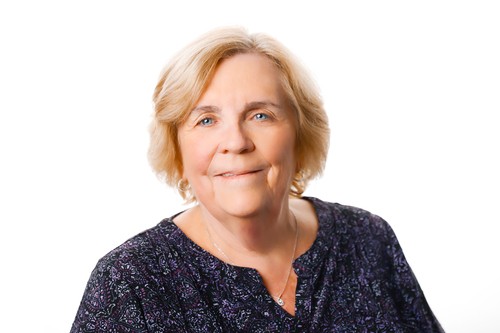A Note from the Pastor
“Just Do It.”
Ah, February.
For some of us, it’s the month of love—Valentine’s Day, cards, flowers, and chocolate.
For others, it’s all about the Super Bowl—the game, the commercials, and the snacks.
And for many of us, February is just that moment when we say, “Okay… winter can be done now, I don’t care what the groundhog says!”
Even though it’s the shortest month of the year, February manages to pack a lot in. And in the middle of all of that—between the hearts and the halftime shows—comes Ash Wednesday. The beginning of Lent. It can almost sneak up on us. While everything else around us is loud and busy, Lent shows up quietly, asking us to pause, and to listen.
Lent invites us to slow down and pay attention—to the quiet nudges we often ignore. You know those nudges that come when you are really tired or planning to do something else. The ones that may make us uncomfortable. The ones that make us question what will happen if we act on them.
I am always amazed at the things I can talk myself out of for one reason or another. And sometimes, it is just fear. It is interesting how fear and faith really don’t get along very well. Don’t become buried in the “what ifs.” You can spend a lot of time there and let many opportunities go by.
God doesn’t nag, he nudges and Those nudges from God are often subtle—easy to miss if we’re rushing or distracted. But we need to pay attention. God is working through us all the time and if we don’t listen for those quiet whispers we may miss things that could become someone else’s miracle.
Proverbs 3:27 tells us “Do not withhold good from those who deserve it when it’s in your power to help them.”
Don’t be afraid to do good. We are called to love our neighbor. Jesus calls us to love one another and to bring that love to light in the way that we treat those around us. Love in Action. Love calls us to stand up for each other, to not be afraid to get involved when we see injustice. To not look the other way when there is something we can do.
Sometimes a nudge is God drawing our attention to something we’ve learned to live with but shouldn’t—an attitude we’ve normalized, a relationship that needs healing, a hurt we’ve buried.
Lent gives us space to listen for those holy whispers. Paying attention to these nudges isn’t about guilt or striving; it’s about trust—trusting that God is leading us, step by step, into deeper love and freedom. I have never regretted responding to one of these nudges, in fact, I have always been thankful I did not ignore it. As you listen this Lent, where do you sense that gentle nudge—and how might God be inviting you to respond?
Pastor Pat Goshert
Ah, February.
For some of us, it’s the month of love—Valentine’s Day, cards, flowers, and chocolate.
For others, it’s all about the Super Bowl—the game, the commercials, and the snacks.
And for many of us, February is just that moment when we say, “Okay… winter can be done now, I don’t care what the groundhog says!”
Even though it’s the shortest month of the year, February manages to pack a lot in. And in the middle of all of that—between the hearts and the halftime shows—comes Ash Wednesday. The beginning of Lent. It can almost sneak up on us. While everything else around us is loud and busy, Lent shows up quietly, asking us to pause, and to listen.
Lent invites us to slow down and pay attention—to the quiet nudges we often ignore. You know those nudges that come when you are really tired or planning to do something else. The ones that may make us uncomfortable. The ones that make us question what will happen if we act on them.
I am always amazed at the things I can talk myself out of for one reason or another. And sometimes, it is just fear. It is interesting how fear and faith really don’t get along very well. Don’t become buried in the “what ifs.” You can spend a lot of time there and let many opportunities go by.
God doesn’t nag, he nudges and Those nudges from God are often subtle—easy to miss if we’re rushing or distracted. But we need to pay attention. God is working through us all the time and if we don’t listen for those quiet whispers we may miss things that could become someone else’s miracle.
Proverbs 3:27 tells us “Do not withhold good from those who deserve it when it’s in your power to help them.”
Don’t be afraid to do good. We are called to love our neighbor. Jesus calls us to love one another and to bring that love to light in the way that we treat those around us. Love in Action. Love calls us to stand up for each other, to not be afraid to get involved when we see injustice. To not look the other way when there is something we can do.
Sometimes a nudge is God drawing our attention to something we’ve learned to live with but shouldn’t—an attitude we’ve normalized, a relationship that needs healing, a hurt we’ve buried.
Lent gives us space to listen for those holy whispers. Paying attention to these nudges isn’t about guilt or striving; it’s about trust—trusting that God is leading us, step by step, into deeper love and freedom. I have never regretted responding to one of these nudges, in fact, I have always been thankful I did not ignore it. As you listen this Lent, where do you sense that gentle nudge—and how might God be inviting you to respond?
Pastor Pat Goshert

